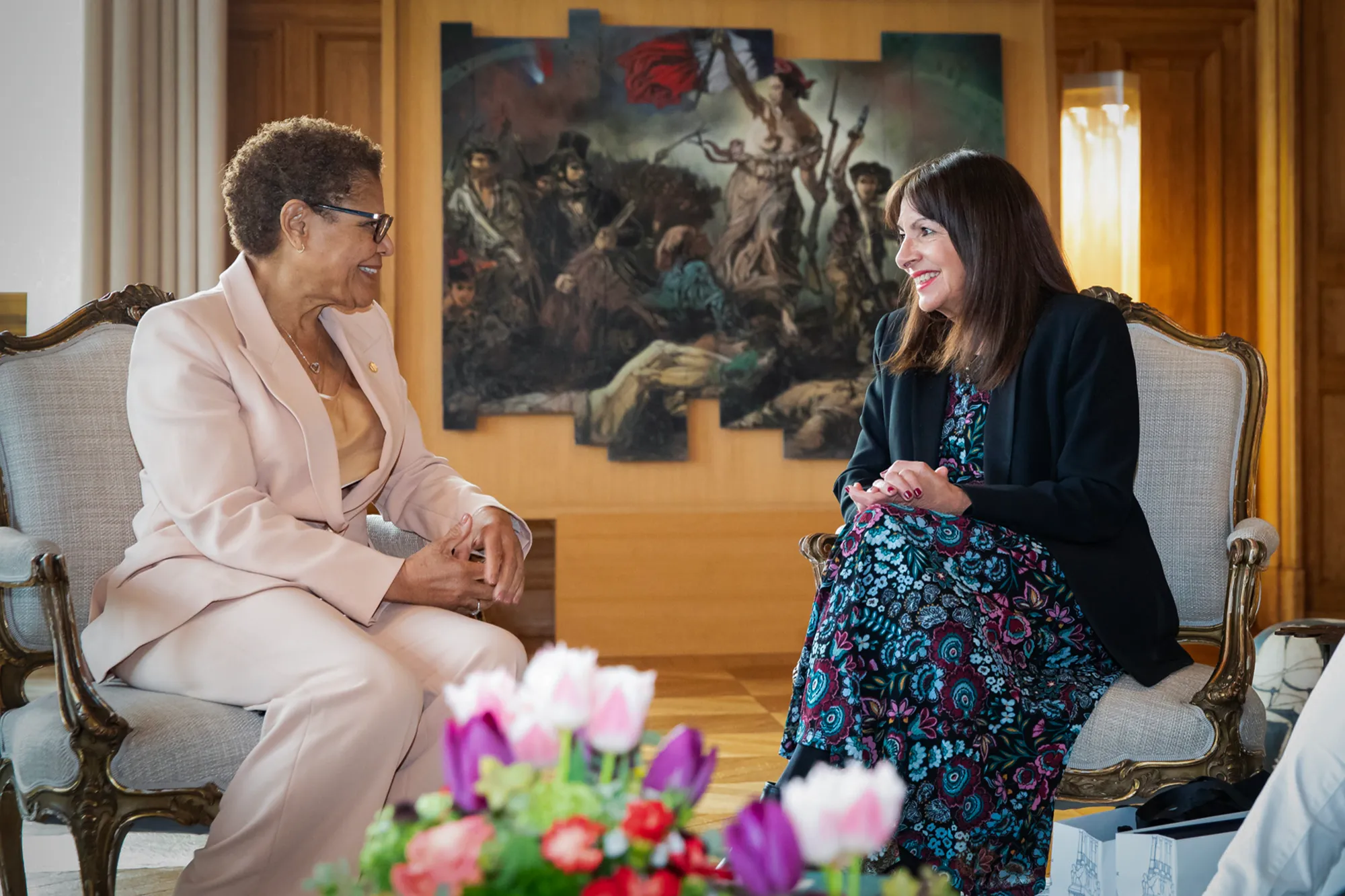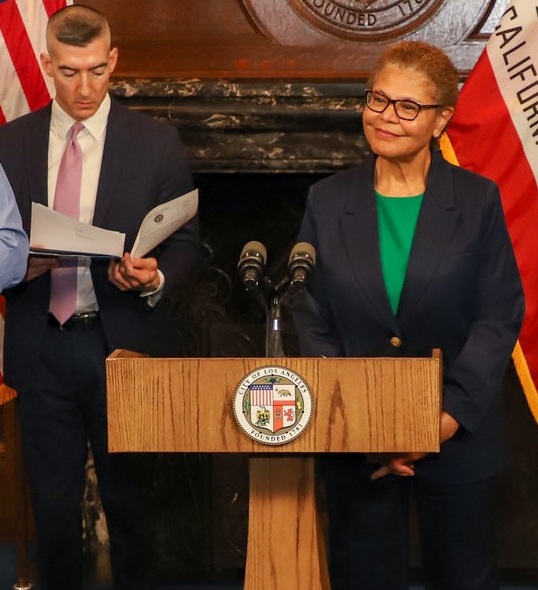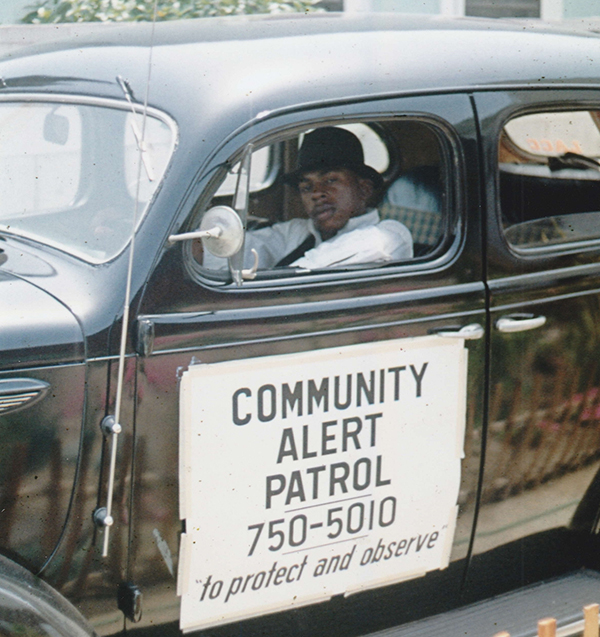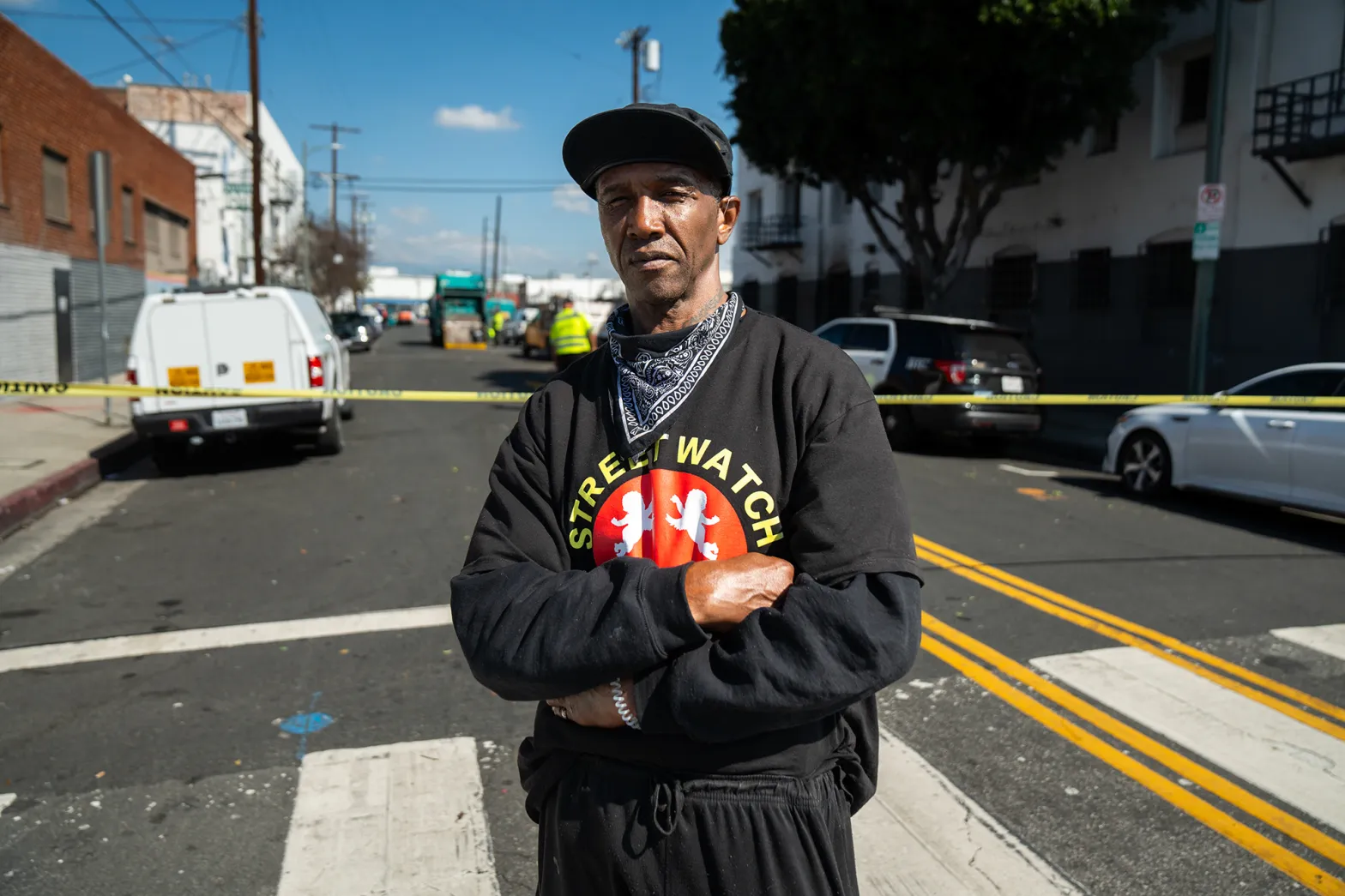Mayor Got Object Lesson in Olympics Scrutiny and Failure
As Paris gets ready for the Summer Olympics, Los Angeles Mayor Karen Bass and her delegation toured key sites and previewed the magnitude of preparation the 2028 games will require. She also received an object lesson in the scrutiny L.A. will face.
BY MICHAEL FINNEGAN AND JIM NEWTON, CalMatters
A three-day trip to Paris last week gave Los Angeles Mayor Karen Bass an opportunity to learn about the French capital’s preparation for the 2024 Olympics and bring those lessons home as her city builds to 2028.
It was also an object lesson in the role of public scrutiny, a reminder that the attention of the world can be a force for progress, but it also makes failure hard to hide.
Near the end of her visit, Bass stopped by the newly built 9,000-seat Porte de la Chapelle Arena for gymnastics and badminton. It was ready more than five months early.
Right by the entrance, though, was a huge construction project that won’t be finished in time: the “CDG Express” train line that was supposed to whisk Olympics spectators between Charles de Gaulle Airport and the Gare de l’Est station in Paris in just 20 minutes. France won’t open the line until more than a year after the Olympics end.
No one mentioned the broken promise, at least not publicly, as Bass and her entourage were chaperoned through the glistening state-of-the-art arena to an outdoor terrace overlooking the unfinished cement rail bed.
Her time in Paris supplied plenty of examples of France’s struggles to prepare for the games. Taking in those difficulties, Bass remarked that she was grateful that competing bids had yielded a simultaneous designation of Paris as host this year and L.A. in 2028.
“It’s scary enough making it in 2028,” Bass told builders of the arena.
Of all the sites that Bass and her team visited, the most striking was the vast Olympic Village roughly four miles north of Paris. It’s a freshly built neighborhood of high-rises in Seine-Saint-Denis, a patch of densely populated suburbs with widespread poverty. The 2,800 units of new housing will include 14,000 beds for athletes, coaches and staff, officials said. A dining hall will serve 40,000 meals a day, and 50 bus stations will transport athletes to sporting events, they said.
For now, it is nearly empty. Once the games are over and the athletes depart, French officials expect 6,000 families to move into the buildings, some of them with public housing subsidies and others paying market prices to own their units. It will include two new schools, along with shops and restaurants.
Mathieu Hanotin, the socialist mayor of Saint-Denis, which includes the heart of the Olympic Village, called the 128-acre development crucial to revitalizing suburbs that are home to thousands of immigrants.
“It’s a rare opportunity to have a new start for the city,” he said.
Bass called the project “a wonderful example of how the Olympics can help be a catalyst to fast-forward projects and a vision that was already under way.”
In that sense, Los Angeles is both a study in contrast and one of paradox: L.A. landed the 2028 games in part because it already has most of the infrastructure to pull off such a monumental undertaking, but having that infrastructure also limits the benefits that the city may reap from the games. Rather than build housing for athletes, for instance, Los Angeles plans to put them in existing student dorms at UCLA.
“It’s a totally different model,” said Katy Yaroslavsky, one of three Los Angeles City Council members who visited Paris with Bass.
Similarly, L.A. isn’t building any major sports arenas, relying instead on SoFi Stadium, the Coliseum, the Rose Bowl and other venues around Southern California. In France, the government is spending more than $2 billion on related projects. Los Angeles officials vowed they wouldn’t spend city funding on the 2028 games, but they want major state and federal contributions.
The French sports minister, Amélie Oudéa-Castéra, urged Bass and other city officials to get to work early on ensuring that political leaders at all levels of government are working together smoothly, according to Paul Krekorian, the L.A. City Council president. That plays to a particular strength of Bass, who came to the mayoralty last year after stints serving in Sacramento and Washington, D.C.
For any Olympics, transportation is an essential component, and that’s especially true for Los Angeles, which is better known for its sprawling highways than public transit. Among the biggest challenges, Krekorian said, will be parking.
“We’re going to sell 10 million tickets for the Olympics, and we’re not going to have a single parking space at any of the venues,” Krekorian said, citing security and environmental concerns over allowing spectators to park at events.
“We’re going to be bringing all of the spectators in by bus,” he continued. That means Southern California will need thousands of extra buses and drivers. “It’s a huge deal.”
With the recent history of terrorist attacks in France, security has been a top concern for authorities in Paris, but it was a minor focus of the visit by Bass, who was not accompanied by anyone from the LAPD and did not meet with any French security officials.
Nonetheless, she said she was struck by the magnitude of security needs when “a couple hundred heads of state” visit a city all at once. She said security preparations would influence her decision-making on the city workforce needed as 2028 nears.
And homelessness shadowed this visit, as it does with almost all initiatives by Bass. She used the Paris trip to highlight her efforts to reduce homelessness in Los Angeles, visiting a shelter for women at City Hall and a local agency that distributes clothing and other supplies to the unhoused.
She noted that Paris plans to move homeless people away from the vicinity of Olympics venues during the games and said Los Angeles might need to do the same.
What she didn’t say was more striking: She has promised substantial reductions in Los Angeles homelessness by the end of her first term in 2027. If she fails to produce, she might not be the mayor who welcomes the games in 2028.
Regardless, she is the one in charge of preparing, and her Paris visit made clear how high the stakes are.
“It definitely put some fire under our feet,” Bass said. “There’s a lot we need to do to get our city ready for the games.”
Scrutiny can be unforgiving.
Finnegan reported from Paris, and Newton from Los Angeles.
Michael Finnegan is a former Los Angeles Times politics reporter now based in Paris.
Jim Newton is a veteran journalist, best-selling author and teacher. Hey, you could be reached at
jnewton100@ucla.edu
CalMatters.org is a nonprofit, nonpartisan media venture explaining California policies and politics. Published with permission of CalMatters
Photo
Bass Olympics
Caption
Mayor of Los Angeles, Karen Bass talks during the conference “In 2024, a woman equals a man? A matter of power” at the City Hall of Paris, France on March 8, 2024.
Photo by Firas Abdullah Firas/ABACA via Reuters for CalMatters
French Sports and Olympic Games Minister Amelie Oudea-Castera and Los Angeles Mayor Karen Bass hold Olympics mascots Sam the Olympic Eagle of the 1984 Los Angeles Olympics and Phryge of the 2024 Paris Olympics during a press conference at the French Sports ministry in Paris on March 8, 2024
—
Los Angeles Mayor Karen Bass meets with Paris Mayor Anne Hidalgo in Paris on March 7, 2024. Photo courtesy of the Los Angeles City Mayor’s Office
—












